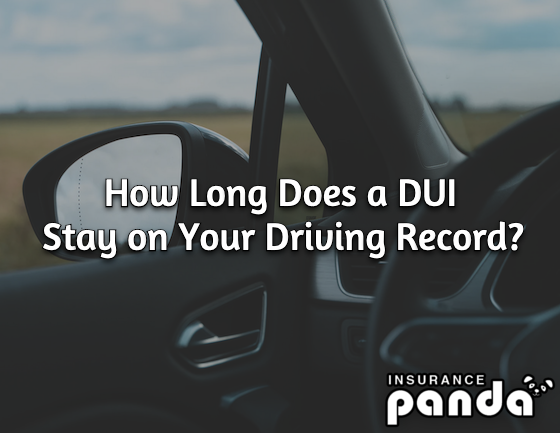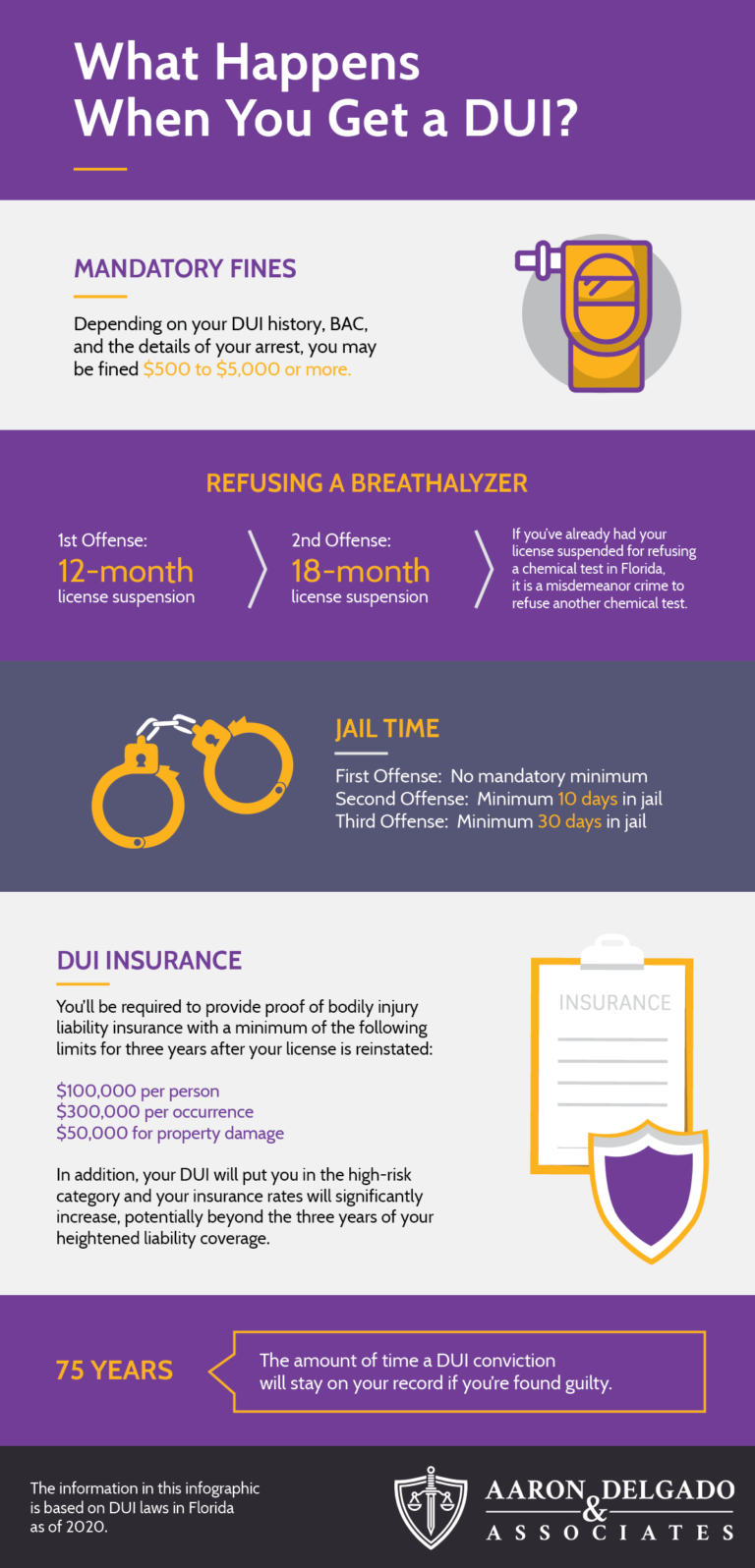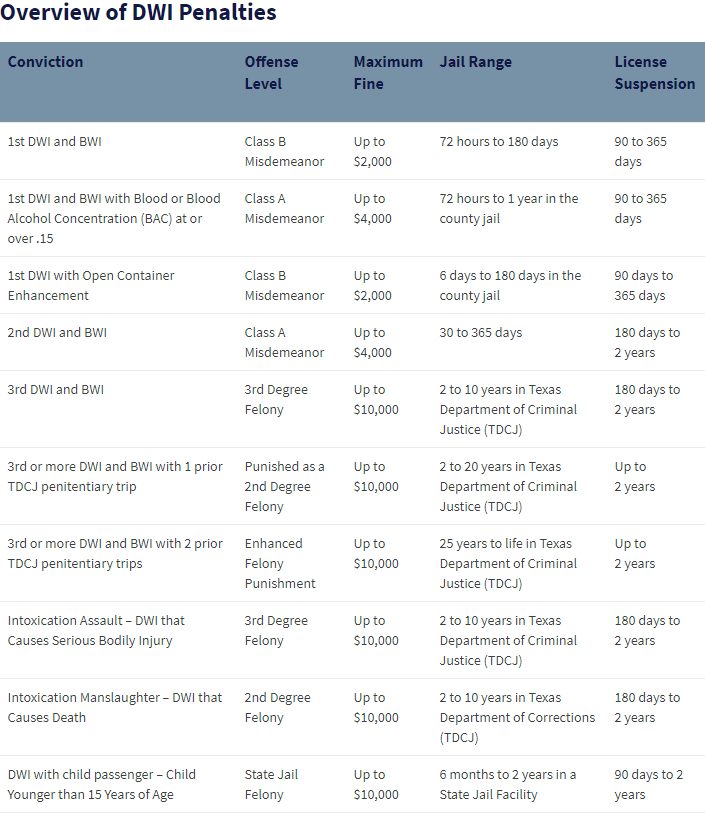How Long Is A Dwi On Your Record?
Have you ever wondered how long a DWI (Driving While Intoxicated) stays on your record? Well, wonder no more! In this article, we’re going to dive into the details and answer that burning question for you.
A DWI on your record is something that can have long-lasting consequences, especially when it comes to your driving privileges and insurance rates. So understanding how long it stays on record is crucial.
Whether you’re a teenager just starting to learn about driving regulations or a concerned parent keeping an eye on your child’s driving history, let’s explore the ins and outs of how long a DWI sticks with you.
A DWI, or Driving While Intoxicated, can stay on your record for a significant amount of time. The exact duration varies depending on the state you live in and your past offenses. In most cases, a DWI can stay on your record for 10 years or more. This can have serious consequences on your insurance rates, employment opportunities, and future legal matters. It’s crucial to understand the laws and regulations specific to your state to navigate the potential long-term impact of a DWI on your record.

How Long Is a DWI on Your Record? Exploring the Impact of a DWI Charge
Driving Under the Influence (DUI) or Driving While Intoxicated (DWI) charges can have significant consequences on various aspects of your life. One common concern that individuals facing a DWI charge have is how long the offense will remain on their record. The duration that a DWI charge stays on your record can vary depending on several factors, including state laws and your individual circumstances. In this article, we will delve into the factors that affect the duration of a DWI on your record, the potential consequences of a DWI charge, and the steps you can take to mitigate the impact of a DWI on your life.
Factors Affecting the Duration of a DWI on Your Record
The duration for which a DWI charge stays on your record can vary depending on several key factors. Let’s explore some of the primary considerations:
1. State Laws and Regulations
The first and most significant factor that influences how long a DWI charge stays on your record is the specific laws and regulations of the state where the offense occurred. Each state has its own statutes that dictate the length of time a DWI conviction will be visible on your record. In some states, the duration is relatively short, while in others, it can last for many years. Therefore, it is crucial to understand the laws of the state where the charge was filed.
For example, in California, a DWI conviction typically remains on your criminal record for ten years. However, in states like New York, a DWI can stay on your driving record for up to 25 years.
It is important to note that these time frames refer to the duration during which the conviction will be visible to employers, insurance companies, and law enforcement agencies conducting background checks. However, your criminal record may still retain the information about the DWI charge indefinitely.
2. Previous Offenses and Repeat Offenses
Another significant factor that affects the duration of a DWI on your record is whether you have any previous offenses or if the current DWI charge is a repeat offense. Many states have stricter penalties for repeat offenders, which can result in a lengthier period for the charge to remain on your record.
For instance, in Texas, a first-time DWI offense will stay on your record for life, while subsequent offenses will remain visible for even longer periods.
Therefore, it is crucial to understand that if you have previous DUI or DWI convictions, it can significantly impact the duration for which the current charge will remain on your record.
3. Successful Completion of Probation or Rehabilitation Programs
In some cases, completing probation or rehabilitation programs can help reduce the duration of a DWI charge on your record. State laws may offer the opportunity to expunge or seal your record once you have fulfilled all the requirements and met certain criteria.
For example, in certain states, if you successfully complete a probation period, attend mandatory education programs, or participate in substance abuse treatment, you may be eligible to have the DWI charge removed from your record or sealed, meaning it will not be visible to the general public.
However, it is important to consult with a legal professional or seek guidance from the relevant authorities in your state to understand the specific criteria and process for expunging or sealing a DWI charge.
The Potential Consequences of a DWI Charge
A DWI charge can have far-reaching consequences beyond the duration it remains on your record. Let’s explore some of the potential consequences you may face:
1. Driver’s License Suspension or Revocation
One of the most immediate consequences of a DWI charge is the suspension or revocation of your driver’s license. Depending on the state and the circumstances of your case, your license may be suspended for a specific period or revoked entirely. This can restrict your ability to drive legally and impact your personal and professional life.
It is crucial to be aware of the laws in your state regarding license suspensions and the steps you need to take to reinstate your driving privileges.
2. Impacts on Insurance Rates
Another significant consequence of a DWI charge is the potential increase in your insurance rates. Insurance companies consider individuals with a DWI conviction as high-risk drivers and may raise their premiums or even refuse coverage altogether. The increased insurance costs can put a strain on your finances for several years.
Additionally, a DWI charge can also affect your eligibility for certain types of insurance, such as life insurance or disability insurance.
3. Employment and Career Repercussions
A DWI charge can have severe implications for your current job or future employment prospects. Many employers conduct background checks as part of their hiring process, and a DWI charge can impact your chances of securing certain positions or professional licenses.
Furthermore, if your job requires driving or a clean driving record, such as working as a commercial driver or delivery driver, a DWI conviction may lead to termination or the inability to pursue certain career paths.
4. Financial Consequences
Finances can be significantly affected by a DWI charge. In addition to increased insurance rates, you may also face fines, court fees, and legal expenses. The cost of attending mandatory alcohol education programs or rehabilitation programs can further add to the financial burden.
Moreover, if your vehicle was impounded or seized as a result of the DWI charge, you may incur additional costs to retrieve or replace it.
5. Personal Relationships and Reputation
Lastly, a DWI charge can strain personal relationships and damage your reputation in your community. Friends, family, and colleagues may view you differently, and the social stigma associated with a DWI conviction can be challenging to overcome. The impact on your mental well-being and relationships can be significant.
Tips for Mitigating the Impact of a DWI on Your Life
While a DWI charge can have significant consequences, there are steps you can take to mitigate the impact on your life:
1. Seek Legal Counsel
Consulting with an experienced and knowledgeable attorney specializing in DWI cases is crucial. They can guide you through the legal process, explain your rights and options, and help you navigate the complexities of the legal system.
Your attorney can evaluate the specifics of your case, challenge the evidence, negotiate with prosecutors, and potentially secure a plea bargain or reduced charges.
A skilled attorney can also advise you on the potential consequences and strategies to minimize the impact of a DWI charge.
2. Complete Rehabilitation Programs
Participating in rehabilitation programs, such as substance abuse counseling or alcohol education courses, can demonstrate your commitment to change and may have a positive impact on the duration of the DWI charge on your record. Compliance with court-mandated programs can also help in negotiating lesser penalties or alternative sentencing.
3. Maintain a Clean Driving Record
After a DWI charge, it is essential to prioritize safe and responsible driving behavior. Adhering to traffic laws and avoiding any subsequent infractions can help rebuild your credibility and demonstrate your commitment to being a responsible driver.
By maintaining a clean driving record, you may also increase your chances of obtaining limited driving privileges during any period of license suspension.
4. Seek Support and Counseling
Dealing with the emotional and psychological impact of a DWI charge can be challenging. Seeking support from friends, family, or professional counseling services can help you cope with the stress, guilt, and shame associated with the situation.
Counseling programs can also assist you in addressing any underlying issues related to alcohol or substance abuse and provide guidance for making positive changes in your life.
5. Learn from the Experience
Finally, use the experience as an opportunity for personal growth and self-reflection. Acknowledge the mistakes made and commit to making better choices in the future. Learning from the experience can help prevent similar situations from arising and pave the way for a brighter future.
In conclusion, the duration that a DWI charge stays on your record can vary depending on state laws, previous offenses, and successful completion of rehabilitation programs. It is essential to understand the potential consequences of a DWI charge, such as driver’s license suspension, increased insurance rates, and impacts on employment and personal relationships. By seeking legal counsel, participating in rehabilitation programs, maintaining a clean driving record, seeking support, and learning from the experience, you can mitigate the impact of a DWI on your life and strive for positive change.
Key Takeaways: How Long Is a DWI on Your Record?
- A DWI (Driving While Intoxicated) can stay on your record for a long time.
- The exact duration varies by state, but it typically ranges from 5 to 10 years.
- Having a DWI on your record can have serious consequences, including increased insurance rates and difficulty finding employment.
- It’s important to consult with a lawyer to understand the specific laws and regulations in your state.
- Taking steps to avoid a DWI, such as designated driving or using ride-sharing services, can help prevent the negative impact on your record.
Frequently Asked Questions
If you have recently been charged with a DWI (Driving While Intoxicated), you might be wondering how long it will stay on your record. Although the exact laws and regulations may vary depending on your location, here are some general answers to commonly asked questions about the duration of DWI records.
What is the typical length of time a DWI stays on your record?
The length of time that a DWI stays on your record can vary depending on your jurisdiction. In most cases, a DWI will remain on your record for several years. However, the specific duration will differ between different states or countries. It is crucial to consult with a legal professional to understand the laws specific to your location and get accurate information on the length of time your DWI will be on record.
Factors such as prior convictions and the severity of the offense can also affect the duration that a DWI stays on your record. In some cases, a DWI may stay on your record indefinitely, especially if it is a repeat offense or involved serious consequences. Always consult with a legal expert to fully understand how long your particular DWI charge will affect your record.
How does a DWI on your record impact your driving privileges?
Having a DWI on your record can have severe consequences on your driving privileges. In many jurisdictions, a DWI conviction can lead to the suspension or revocation of your driver’s license. The length of the suspension or revocation period can vary depending on factors such as the severity of the offense and any previous convictions. It is crucial to review the specific laws and regulations of your jurisdiction or consult with a legal professional to understand the potential impact on your driving privileges.
Additionally, having a DWI on your record may result in the requirement to use an Ignition Interlock Device (IID) before being allowed to operate a vehicle. An IID is a breathalyzer device installed in your vehicle that requires you to pass a breathalyzer test before starting the car. These devices are designed to prevent individuals under the influence of alcohol from driving. The length of time you may be required to use an IID will depend on the laws and regulations of your jurisdiction and the specifics of your DWI conviction.
Can you get a DWI removed from your record?
In some cases, it may be possible to get a DWI removed from your record, but it depends on the jurisdiction and the circumstances surrounding your case. Certain jurisdictions offer options for record expungement or sealing, which essentially means that your DWI would no longer be visible on your record to the general public. However, not all jurisdictions provide this option, and there may be specific criteria or waiting periods before you can apply for record removal. It is important to consult with a legal professional familiar with the laws of your jurisdiction to determine if record expungement is a possibility for you.
It is worth noting that even if you can get a DWI removed from public view, law enforcement agencies and certain organizations may still have access to your complete driving record, including expunged or sealed entries. It is always advisable to be honest and transparent about your past record when required, such as during job applications or background checks, as providing false information can have severe consequences.
How does a DWI on your record affect insurance rates?
Having a DWI on your record can significantly impact your auto insurance rates. Insurance companies generally consider a DWI as a high-risk factor, which can result in increased premiums. The exact impact on your rates will depend on various factors, including the insurance company’s policies, the duration of the DWI on your record, and any additional driving offenses or accidents. It is important to inform your insurance provider about your DWI conviction to ensure accurate coverage and avoid potential issues down the line.
In some cases, insurance companies may even choose to cancel your policy or refuse to renew it after a DWI conviction. This can make it challenging to find affordable coverage, and you may need to seek out specialized high-risk auto insurance providers. It is advisable to compare quotes from different insurance companies to ensure you are getting the best coverage at a fair price despite the impact of a DWI on your record.
How long does a DWI stay on your criminal record?
A DWI conviction can generally stay on your criminal record for an extended period, even if it is eventually removed from your driving record. The duration can vary depending on the laws and regulations of your jurisdiction. In some cases, a DWI may be classified as a misdemeanor, while in others, it may be considered a felony offense, which can have even longer-lasting consequences.
Typically, a DWI can stay on your criminal record for several years or more, particularly if it is a repeat offense or if aggravating factors were present. Having a criminal record can impact various aspects of your life, including employment opportunities, housing applications, and even your personal reputation. It is advisable to consult with a legal professional to fully understand the specific laws of your jurisdiction and the lasting effects a DWI conviction on your criminal record may have.
How long does a DWI stay on your record?
Summary
So, to sum it all up, we learned about DWI and how long it stays on your record. DWI stands for Driving While Intoxicated, which means driving under the influence of alcohol or drugs. Having a DWI on your record can have serious consequences, like higher insurance rates and difficulty getting a job or a loan.
We found out that the length of time a DWI stays on your record varies from state to state. In some places, it can stay there forever, while in others, it can be removed after a certain number of years. It’s important to understand the laws in your specific state to know how long a DWI will affect you.
We also discovered that getting a DWI expunged from your record is not easy. It usually involves going through a legal process and meeting certain requirements. So, the best way to avoid the long-lasting consequences of a DWI is to not drink and drive in the first place. It’s always better to find a sober driver or use alternative transportation options.
Remember, driving under the influence can be dangerous not only for yourself but also for others on the road. By making responsible choices and understanding the consequences of a DWI, we can all contribute to safer roads and communities. Stay safe and make smart decisions!





